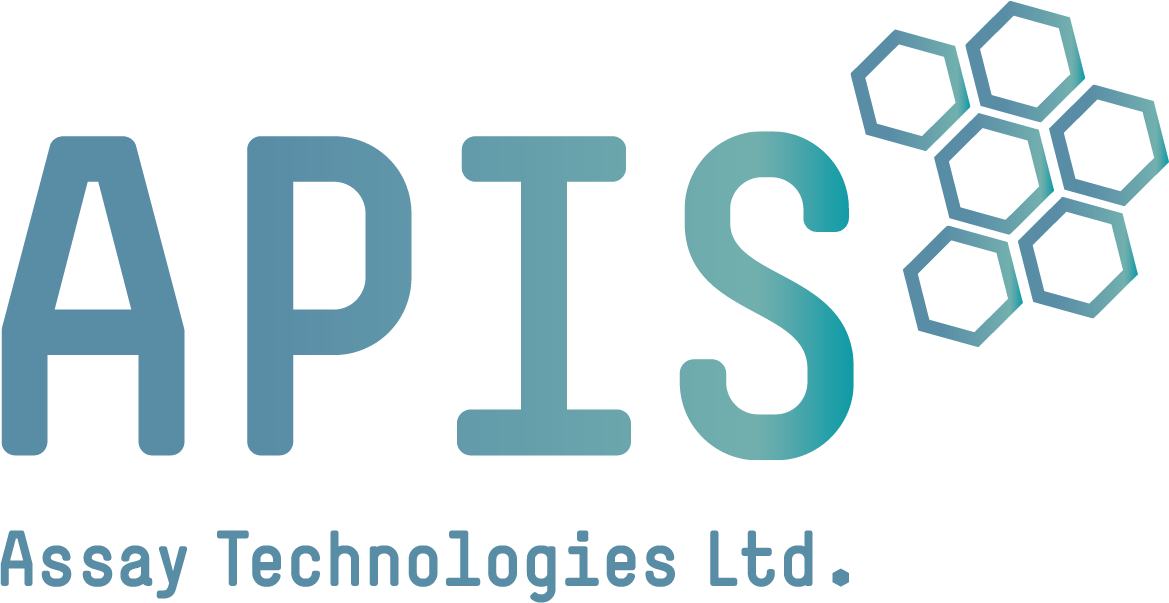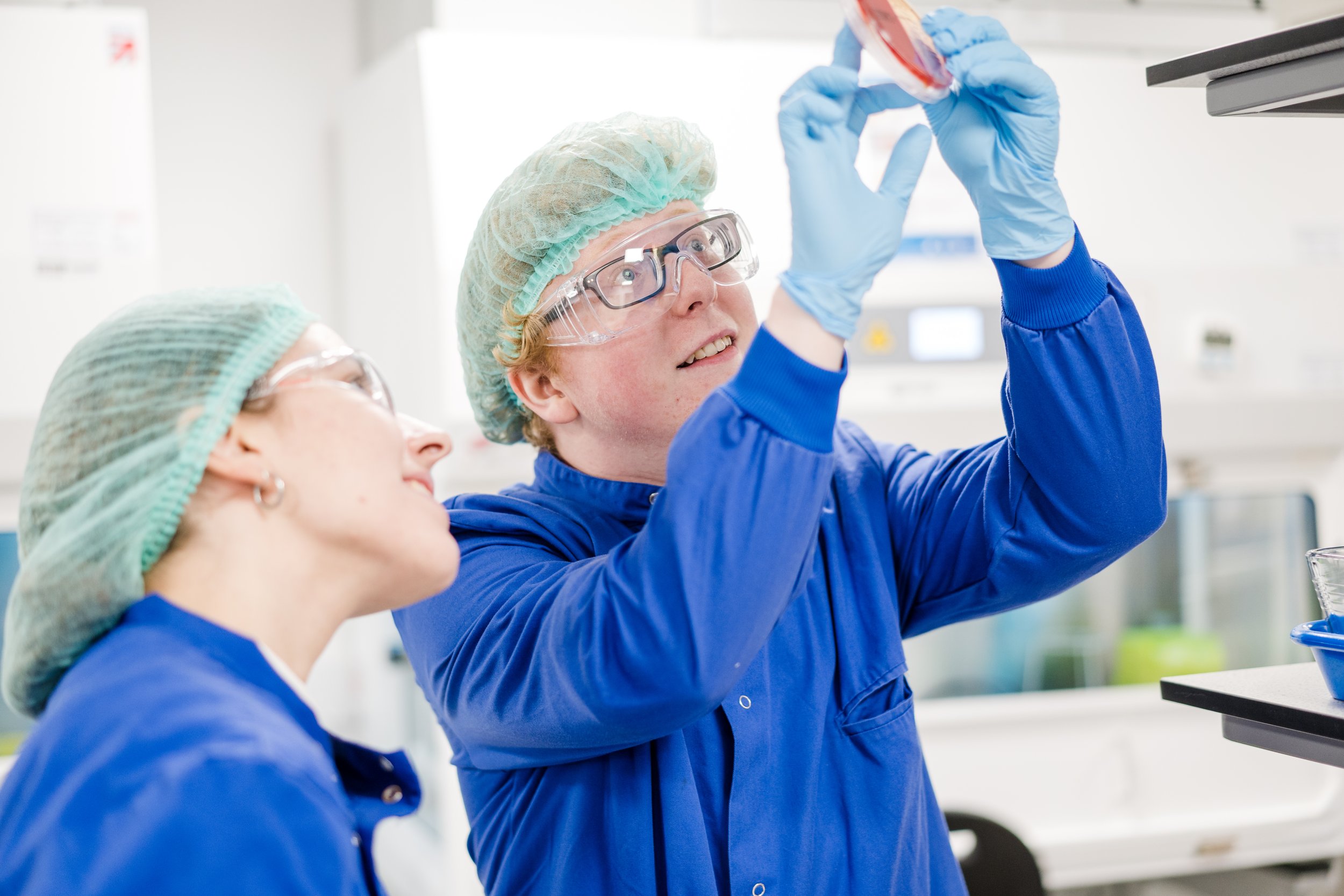
Contract Assay Development
APIS Assay Technologies offers high-quality and efficient assay development services, with end-to-end competency: from Assay Definition & Feasibility to Product Registration.
Contract Assay Development Services at APIS
Whether developing a simple manual assay or a complex automated multiplex assay, APIS’ contract development services offer extensive diagnostic expertise and dedicated laboratory space to accelerate your assay development and manufacturing, in accordance with ISO 13485:2016. Additionally, APIS’ clinical compliance services provide support across the clinical performance pipeline, including CE-IVDR submissions (ISO 20916:2019).

Our Expertise
Diagnostic Assay Development
End-to-end contract development services: Assay Design Input & Planning, Feasibility, Development, Verification & Validation, to Product Realisation
Expertise in multiplex PCR (RT-qPCR, qPCR, digital PCR), NGS and Immunoassay (e.g. ELISA) technology
Experience in numerous sample preparation methods (RNA, DNA, Protein & Direct) and sample matrices (blood, FFPE, swab, stool, sputum, BAL, CSF, urine, saliva)
Technical documentation generation (Instructions for Use, Product Master Record)
Integrating novel synthetic diagnostic and detection ligand-binders (Clickmers) into diagnostic assays
Diagnostic Software Development solutions to enable automatic results interpretation (ISO 27001)
APIS offers a Clinical and Regulatory Affairs consultancy service to help navigate the IVD regulatory environment across different regions (e.g. CE-IVDR, UKCA, FDA)
Clinical Performance Study design and management (ISO 20916:2019 and ICH E6)
Clinical site selection, management, and monitoring, including sample procurement
Clinical Evidence documentation (Performance Evaluation Plans/Reports and Scientific Validity)
Technical file generation for submission to regulatory bodies (e.g. IVDR)
Post-market surveillance and post-market performance follow-up studies
Supporting the IVDD to IVDR CE-marking transition
Prototyping - Early phase kit configurations
Pilot/Commercial manufacturing
Design Transfer and Process Validation Capabilities
Designated manufacturing facilities in compliance with ISO 13485:2016
Raw Material Sourcing
Cold-chain logistics, storage and distribution
Stability studies
Microbiological Capabilities
Expertise in the development of highly complex, multiplex infectious disease syndromic panels
Category Level 2 facilities with HSE clearance to work with HG1 and HG2 pathogens, with further clearance for work with SARS-CoV-2, STEC and EIEC
State-of-the-art microbiological laboratory, for the identification/characterisation of Bacterial and Fungal species, as well as antimicrobial resistance assessment
Contriving pathogenic samples for performance studies, including clinical workflow simulations (e.g. blood culture systems for clinical validation studies)
Design Control Expertise
The overall APIS product development process is a stage-gate phased process as outlined below:
Phase 1 - Design Input and Planning
The objective of Phase 1 is to evaluate the clinical and commercial potential of the product concept, to define the key Design Inputs and plan how the product will be developed.
Key deliverables: Design and Development Plan | Customer Requirements | Scientific and Clinical Evaluation Report | Regulatory Strategy | Design planning
Phase 2 – Feasibility
The objective of Phase 2 is to translate the product concept into an optimal design and to show that it is feasible to meet the customer requirements and to manufacture the product. In addition, product risk management should be initiated.
Key deliverables: Product Risk Management File | Technical Feasibility Report | Product Requirements | Manufacturing Feasibility Assessment
Phase 3A – Development
The objective of this phase is to demonstrate that it is feasible to meet the product requirements using the prototype design and to establish the intellectual property (IP) landscape. Additionally, a QC concept would be defined and the locked design should be transferred to manufacturing to allow product to be made for Phase 3B.
Key deliverables: Design Transfer Plan | Development studies | IP landscape assessment | Verification and Validation Plans
Phase 3B – Verification
The objective of this phase is to verify that the design meets the product requirements and that the transfer and manufacture of the locked design was successful.
Key deliverables: Instructions for Use | Design Transfer Report | Verification Reports
Phase 4 – Validation
The objective of this phase is to validate that the design meets the user needs and to finalise the instructions for use.
Key deliverables: Design Validation Reports | Instructions for Use | Regulatory technical files and submissions and approvals.
Phase 5 – Product/Project Design Transfer
The objective of this phase is to write and obtain the regulatory approvals and to transfer the final product design to the customer.
Key deliverables: Device Master Record(s) | Product Master Record(s) | Post-market surveillance (if applicable)






